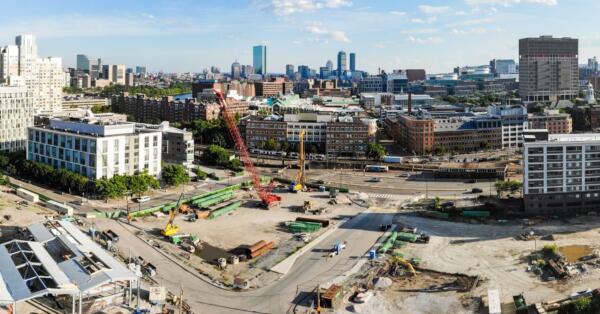After purchasing a site for development, selection of the project design team is the most important decision to be made by the project developer. This team of design professionals (along with selection of the General Contractor) will determine, more than any other aspect of the project, if financial success for the Owner is realized at Substantial Completion. It’s critical to evaluate each component of the design team based on qualifications and depth of service needed for a particular project. Selection interviews should include the following basic disciplines:
- Architect
- Civil Engineer
- Structural Engineer
- MEP Engineer
- Landscape Architect
- Interior Designer
- ADA/UFAS/Accessibility Designer/Consultant
- Third-Party Consultants
In this article, we outline recommended questions to pose when selecting a design team and best practices in developing a team that will likely achieve project success.
Architect
Historically, the Architect is the leader of the design team and there is merit in following this precedent. Tasking the Architect with coordination of all disciplines assures that conflicts between building systems are resolved during design rather than arising in the field when budget and schedule are on the line while a solution is determined. Recommended questions for the Architect interview include:
- Has the firm performed work in the project jurisdiction?
- Does the firm utilize the current industry standard drawing technology of Revit with clash detection?
- Are the firm’s construction drawings produced entirely in the United States, or does the firm have a robust review and revise protocol to ensure drawings produced abroad conform to state and local demands? (Many firms outsource construction drawings to other countries where labor costs are lower leading to several coordination issues and errors)
- Will a licensed architect be assigned to the project for the duration of the project? Will someone from the design team be available during the Construction Administration portion of the project?
- How many total RFIs were generated on the firm’s last three projects of this type?
- In general, what was the main cause for the RFIs generated?
- Was it incomplete plans/specs, changes to work, substitutions?
- What was the total Change Order amount and number of Change Orders on last three projects?
- To what were these costs mainly attributable (design omission or error, changes to program, etc.)?
- How does the firm assure smooth transitions between design, construction document and construction phases of the project?
- Does the firm have experience or expertise in the project type being proposed?
As the leader of the design team, the Architect must set the tone for professionalism, work ethic, competence, and determination for complete collaboration between team members. Often the Architect will directly hire the sub-consultants needed for a project, giving contractual control and continuity to the Architect, and allowing the Developer and Architect to demand the coordination needed between all parties. However, the Developer should still interview the sub-consultants and have the option to select other firms. In any final contractual arrangement, the Architect should have the authority, and therefore the responsibility to coordinate all sub-consultants on the team by establishing good communication protocols and information exchange.
Civil Engineer
- Has the firm performed work in the project jurisdiction? Does the firm have a license and business permit to work in the jurisdiction?
- How many projects of comparable size and scope has the firm completed?
- Has your firm completed projects utilizing green roofs/walls in Storm Water Management calculations?
Structural Engineer
- Has the firm performed work in the project jurisdiction? Does the firm have a license and business permit to work in the jurisdiction?
- Who has primary responsibility for clash detection and resolving coordination issues?
- Are there architects with whom you have worked with on two or more projects?
- Does the firm have significant experience in wood, steel, and concrete construction?
It’s important to have a Structural Engineer who can easily communicate with the Architect since a very clear dialogue has to occur when the preliminary design is intertwined with the supporting structural system.
MEP Engineer
- Has the firm performed work in the project jurisdiction? Does the firm have a license and business permit to work in the jurisdiction?
- Does your firm have a licensed Fire Protection Engineer on staff to work on this project?
- Are your Electrical, Plumbing and Mechanical Engineers each licensed in the jurisdiction?
- What is your office protocol that assures MEP teams coordinate their work in house?
- Does your office utilize energy modeling software to assist in assuring building envelope energy efficiency?
- Does your firm have experience incorporating air filtration technology into the mechanical design to mitigate the spread of viruses in various building types?
It is essential that a Fire Protection Engineer be a member of the MEP team. This is a life safety issue that determines many coordination issues regarding ceiling space for sprinkler piping and adequate planning for a fire pump and fire water line.
Landscape Architect
- Has the firm performed work in the project jurisdiction? Does the firm have a license and business permit to work in the jurisdiction?
- How many projects have you completed in this local region using native plants?
- Have you completed projects with green roofs?
- Does your firm work with the Architect and Interior Designer to create meaningful view and functional connections to outdoor spaces adjacent to the building?
Many times, the wall between an indoor and outdoor space is all glass, and yet, other than agreeing upon door locations, the Landscape and Interiors teams often do not coordinate the alignment of visual axes, solar orientation issues, or placement of furniture that can strengthen the indoor/outdoor connection.
Interior Designer
- Has the firm performed work in the project jurisdiction? Does the firm have a license and business permit to work in the jurisdiction?
- Does your firm have a licensed Architect on staff who can assure Building Code compliance and stamp your drawings?
- How does your firm assure your design progress is in alignment with project budget?
- Can your staff read structural, mechanical, and electrical drawings?
- How does your firm work with project Landscape Architects to provide meaningful view and functional connections to outdoor spaces adjacent to the building?
The Interior Designer (“ID”) is most likely hired directly by the Owner, but project coordination will be less plagued with oversights if the Owner makes clear that the ID takes direction from the Architect. Team dynamics are often complex and if the leader is not clearly designated by the Owner then oftentimes, rogue decisions start to be made, deadlines fly out the window and team cohesiveness is lost.
ADA/UFAS/Accessibility Consultant
- Has the firm performed work in the project jurisdiction? Does the firm have a license and business permit to work in the jurisdiction?
- Has the consultant worked on projects of similar size, scope and funding?
- Does the consultant have both designers and field reviewers to assist in both design and construction?
Third-Party Consultants
In addition to all the designers and consultants listed above, the design team will often advise on a range of third-party consultants, including:
- Waterproofing/Envelope and Roof consultants
- Window testing companies
- Commissioning Authority
- Building/Fire Code consultant
- Specialty Hardware/controls/Low Voltage
How Can VERTEX Help?
Selecting a cohesive and coordinated design team is not easy but the effort is well worth it when one considers these professionals hold the project’s success in their hands. Keep in mind that all these designers want your project, and it pays to look beyond the stunning renderings and videos. As an Owner’s Representative, VERTEX can be a guide through this selection process to assure a strong start on any project.
To learn more about VERTEX’s Services or to speak with an Expert, call 888.298.5162 or submit an inquiry.






